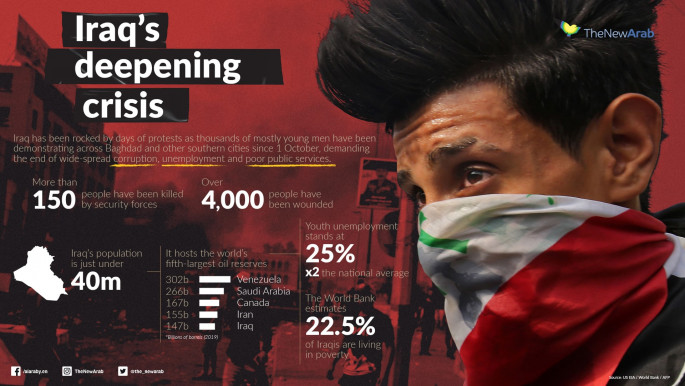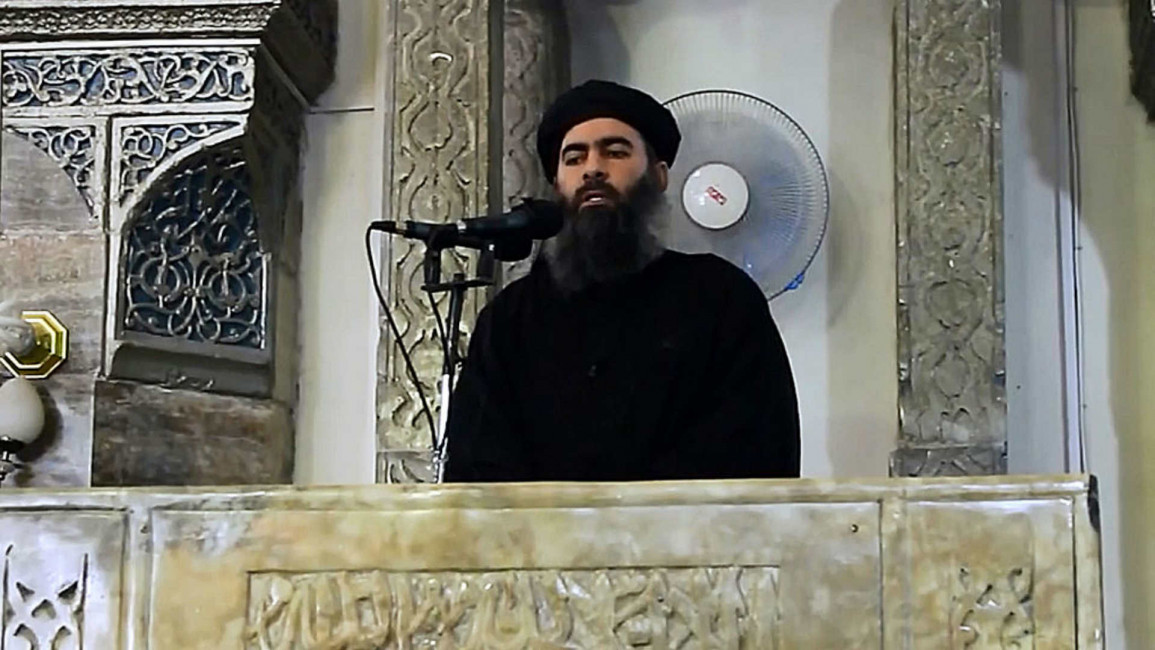
Misunderstanding Baghdadi will herald another 40 years of terror
Troubling, because the overwhelming public analysis of IS and terrorism from Muslim-majority societies perpetuates everything that American, European, Arab and other political leaderships have been doing wrong in their battle against IS and Al-Qaeda-like terror groups for the past 40 years.
Forty years! That is how long it has been since the 1979 attack on the Great Mosque in Mecca by Saudi religious fanatics effectively launched the current era of terror from Muslim-majority lands. I leave out the older legacy of political violence by both Israelis and Palestinians in their century-long and continuing war, given the focused nationalist dimensions of that conflict.
Throughout these four decades of non-stop terror across the Middle East and the world, all concerned political leaderships have consistently made similar mistakes that have helped perpetuate this ugly phenomenon and turn it into a global enterprise that is sure to continue to evolve and perhaps expand - because nobody is seriously addressing the core drivers of mass citizen discontent and dehumanisation that gave birth to the terror, and continue to stoke it.
The first mistake is that they have misdiagnosed the nature and impetus for most terror movements and their many attacks, anchoring them largely in religious extremism and cultural or civilizational clashes.
 |
The overwhelming analysis perpetuates everything that American, European, Arab and other political leaderships have been doing wrong in their battle against IS |  |
These factors play some role in the lives of some terrorists, but they are not the reason why these movements have endured regionally and globally for the past 40 years. In fact, they continue to expand, even as the combined military forces of the leading global and Middle Eastern powers repeatedly assault them, killing most of their leaders, apparently with little impact on the movements themselves.
The second is that they have overemphasised the role of the Islam in this arena. Most of the western media's analysis of Baghdadi in the past few days has focused on his strong or weak credentials as a religious leader, with a bit of discussion on why IS was born and expanded after the US-led invasion of Iraq in 2003.
Religion - all religions - is always an effective justifying force to attract discontented and usually wayward young men who seek direction and meaning in life; but it is secondary to the psychological and material degradation that a majority of Arabs suffer due to their total helplessness in the face of mostly incompetent, corrupt, and authoritarian ruling elites. These elites are always supported by powerful foreign governments; Arab, Iranian, European, Russian, Israeli, Turkish, and American - plenty of blame for all to share here.
 |
|
| [Click to enlarge] |
The third is that they have largely ignored the critical wider context of socio-economic and political conditions in the lands that generate the terrorists, and that repeatedly transform ordinary young citizens into vicious and indiscriminate killers of innocent civilians.
When the Arab region enjoyed half a century of sustained growth until around 1980, terrorism was only an occasional problem of lone criminals or isolated small groups - because the vast majority of citizens saw their lives improving along with their children's future prospects.
Since then, socio-economic-political and environmental conditions have deteriorated steadily in the majority of Arab countries, to the point today where: 66 percent of citizens are poor or vulnerable, power cuts and water shortages plague many lands, decent jobs for youth only cover about a quarter of needs. The perception of corruption and the desire to emigrate dominate life conditions, and all are politically marginalised (other than in Tunisia's young democracy), and totally unable to hold power accountable or share in setting policies and priorities.
 |
This is precisely the chaotic condition that groups like Al-Qaeda, IS and their many junior partners favour for their birth and growth |  |
The fourth is that since the American-led global "War on Terror" that George W. Bush launched against Al-Qaeda in 2001 right after 9/11, military force has been the predominant means of fighting terror groups.
This has destroyed numerous training camps, killed leaders, and dispersed many of the terrorists to foreign lands - but crucially, it does not seem to have ended the threat from terror or the growth and decentralisation of terror groups. It probably has contributed to the growth of terror recruiting.
The steady recent expansion of foreign military attacks inside Arab countries (including Arab attacks against other Arabs, such as UAE-Saudi warfare in Yemen or Libya, or Turkish, Israeli, and Iranian militarism) have turned vast stretches of Arab territory into ungoverned wastelands.
Read more: How humiliation is fuelling the Arab street
This is precisely the chaotic condition that groups like Al-Qaeda, IS and their many junior partners favour for their birth and growth. Syria is the most devastating example of this, but so are Yemen, Iraq, Libya, Somalia and other islands of wrecked spaces in Arab lands.
The fifth is that most countries that have applied programmes to Prevent or Counter Violent Extremism (PVE and CVE) have had only minor success in either preventing or countering extremism. This is because they have disproportionately focused on internet recruiting and media imagery as dominant battlegrounds, without sufficiently looking inside the hearts and minds of those young men and the occasional young women who reach a desperation point and fall into the maelstrom of terror's fantasies.
Twitter Post
|
The sixth is that the dominant force of military takeover of governance that has disfigured and shattered many Arab countries, including Iraq, Syria, Libya, Algeria, Yemen, Egypt, and Somalia, continues unabated across the region, always with strong, direct, and perpetual foreign power support.
As long as security-led, corrupt, and mostly incompetent governments dominate the Arab region, the lives of the majority of citizens will continue to spiral into a living hell of poverty, vulnerability, marginalisation, and hopelessness - making fertile ground for new terror groups, human smugglers, criminal gangs, militias, or others in society who reflect the continuing mass degradation of human life.
Against this backdrop, ruling elites respond with disdain when citizens raise their voices to appeal for reforms, social justice, and a chance for their children to look forward to a decent life. Most also respond with insincere promises or violence when citizens take to the streets in desperation, as they have done across the region since 2010-11.
The gruesome reality, is that all six of these forces that shape western and Arab attitudes to terrorism have plunged the Arab region into political turmoil and mass human suffering, where chronic warfare continues unabated, with steady foreign support.
This is why I am so disappointed by the chronically and woefully inept Arab and international response to IS and their ilk, as witnessed today after the death of Baghdadi.
The parallel terror we suffer is the message from Arab and western governments alike, that we should expect them all to persist in their juvenile misdiagnosis and consequent military-heavy policy responses to the terrorism that has plagued us all for the past 40 years.
Rami G. Khouri is senior public policy fellow, adjunct professor of journalism, and Journalist-in-Residence at the American University of Beirut, and a non-resident senior fellow at the Harvard Kennedy School's Middle East Initiative.
Follow him on Twitter: @ramikhouri
Opinions expressed in this article remain those of the author and do not necessarily represent those of The New Arab, its editorial board or staff.




